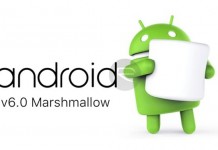
Read Michel Mace’s article, below, and then go read Chris Ziegler’s article, excerpted here. We’re in for some interesting times.
Initially, I’d figured the Appstore wouldn’t be much more than a way for Amazon to earn a little coin off the booming, highly profitable mobile app business. Instead, they’ve picked the very lock that Google uses to control Android. By creating a legitimate Market alternative with over 10,000 apps (at last count) and the full backing of the Amazon juggernaut, Jeff Bezos no longer needs a thing from Google. And here’s the craziest part: on the strength of the entirety of the Amazon ecosystem — Kindle, Whispersync, and so on — the Kindle Fire will be the greatest and most popular Android-powered tablet ever created. By miles and miles and miles. And it’ll happen without Google’s blessing, without Andy Rubin’s blessing, without the Android Market.
Amazon now stands poised to take one of Google’s most critical assets — Android — and turn it against them. Praise for the Fire’s deeply-customized version of Android 2.3 has been nearly universal, and make no mistake, there’s no going back; this is Amazon’s operating system now, built atop a road-tested core that Google served up free of charge. As Nilay notes, the Fire is all about consuming media — it’s not a tablet designed for general computing — and as such, I don’t think that it competes head-to-head with any Honeycomb tablet on the market today. That said, it certainly sets the stage for Amazon to move deeper into mobile hardware in the coming years — and if I were Google, Apple, or Microsoft, I’d go ahead and assume that’s exactly what’s happening (in fact, the rumor mill already has other tablets in the pipeline). After all, it wasn’t long ago that we thought it was preposterous that a search engine might create a phone popular enough to take over the world; it’s no more preposterous to think that the world’s largest online retailer could do the same.

































Does it really work against Google? Most of what you buy through the Amazon Appstore works on Android phones and other Android tablets. I have apps from Amazon’s store on both my phone and my rooted Nook Color. The Nook Color also runs a completely customized version of Android, and that has hardly been negative for Google.
I think the idea that Google gets nothing if companies customize Android is too narrow minded. Google has never directly made money from Android, anyway. Google’s strategy with Android has always been about what people use it for. It’s never been a secret that Google makes its money in the cloud. As long as people are investing in the Android ecosystem, as is definitely the case with the Kindle Fire, Google loses nothing and probably gains something along the way.
Matt, the danger to Google lies here:
Google is an advertising company and its revenue is derived from people using its properties: apps, sites and services.
The benefit of Android to Google is that it puts those properties in front of the user and has pretty near full control of the experience. To get a license to refer to a phone/tablet as an “Android” device and include Google’s non-open source apps requires Google to certify it.
The “open, open, open!” chant to developers may suggest that Google just wants Android’s open source code to be used and loved, but in reality – and away from the propaganda – Google wants and needs to control the actual device experience just as much as any other profit motivated company.
To the extent that the Kindle Fire will still run a web browser, Google benefits. However, it will not include Google’s certified apps, and will not steer users towards Google’s services. Even the web browser is now filtered through a different company’s lens.
But Google’s Android still dominates the phone market to an ever increasing extent and that’s really where mobile advertising will be profitable, so I’d agree they probably don’t care that much about losing the opportunity to be dominant in tablets.
For an excellent analysis on the implications of what Amazon is doing …check out Daniel Eran Dilger’s always excellent blog here:
http://www.roughlydrafted.com/2011/09/30/kindle-fire-promises-to-burn-android-to-the-ground/
Chris Ziegler may posit that it is an Amazon success what they are doing to Google … but what if Google cease it’s development ?